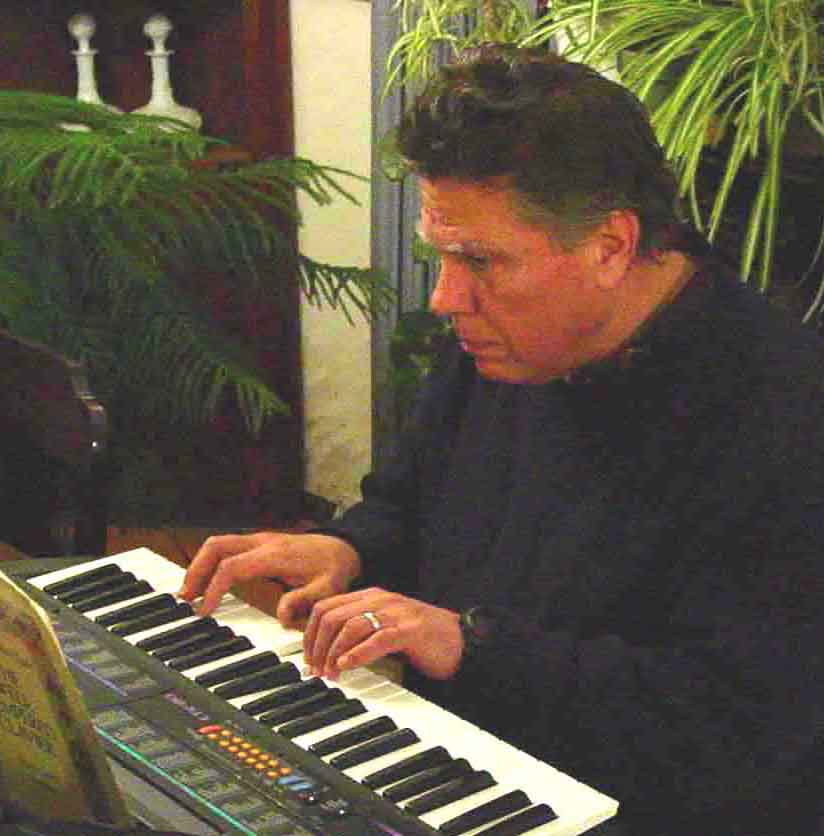The Bill of Rights

Home
About Neely
Bill of Rights
Compositions
Contact
E-mail List
Neely's Blog
Photos
Upcoming Events
See Bill of Rights performance on YouTube:
First singing of Bill of Rights was July 10 in Middletown, CT.
"On this beautiful Bastille Day in Connecticut I would like to take stock of the Bill of Rights composition project. Last Sunday—July 10—a group of some fifty singers joined me at South Church..." [read complete BLOG]
Composer Neely Bruce saw a survey indicating that many young people today feel is OK to violate the Bill of Rights in the interest of national security (www.teachfirstamendment.org) . He asked himself, "What can I do? How can I encourage young people today to be more aware of the rights so many have struggled to pass on to us?" He decided to set the Bill of Rights to music, suitable for performance by high school and community choral groups.
A complete PDF music manuscript with performance rights for the First Amendment is now available for download here without fee. You will need the Adobe Acrobat Reader, version 5.0 or later. Send us an e-mail at neelybrucemusic@comcast.net. Tell us about yourself and your performance plans - and please keep us informed of actual performance dates and venues for posting on this web site.
Funding is now being sought to make the entire Bill of Rights composition available through this web site.
Learn more about the history and significance of the Bill of Rights at Teach the First Amendment, the National Archives, the Bill of Rights Institute, and the Bill of Rights Links at Yahoo.com.
- - - - - - - - - - - - - - - - - - - - - - - - - - - - - - - - -
THE BILL OF RIGHTS
Amendments 1-10 of the Constitution of the United States of America
The Conventions of a number of the States having, at the time of adopting
the Constitution, expressed a desire, in order to prevent misconstruction or
abuse of its powers, that further declaratory and restrictive clauses should
be added, and as extending the ground of public confidence in the Government
will best insure the beneficent ends of its institution;
Resolved, by the Senate and House of Representatives of the United States of
America, in Congress assembled, two-thirds of both Houses concurring, that
the following articles be proposed to the Legislatures of the several
States, as amendments to the Constitution of the United States; all or any
of which articles, when ratified by three-fourths of the said Legislatures,
to be valid to all intents and purposes as part of the said Constitution,
namely:
Amendment I
Congress shall make no law respecting an establishment of religion, or
prohibiting the free exercise thereof; or abridging the freedom of speech,
or of the press; or the right of the people peaceably to assemble, and to
petition the government for a redress of grievances.
Amendment II
A well regulated militia, being necessary to the security of a free state,
the right of the people to keep and bear arms, shall not be infringed.
Amendment III
No soldier shall, in time of peace be quartered in any house, without the
consent of the owner, nor in time of war, but in a manner to be prescribed
by law.
Amendment IV
The right of the people to be secure in their persons, houses, papers, and
effects, against unreasonable searches and seizures, shall not be violated,
and no warrants shall issue, but upon probable cause, supported by oath or
affirmation, and particularly describing the place to be searched, and the
persons or things to be seized.
Amendment V
No person shall be held to answer for a capital, or otherwise infamous
crime, unless on a presentment or indictment of a grand jury, except in
cases arising in the land or naval forces, or in the militia, when in actual
service in time of war or public danger; nor shall any person be subject for
the same offense to be twice put in jeopardy of life or limb; nor shall be
compelled in any criminal case to be a witness against himself, nor be
deprived of life, liberty, or property, without due process of law; nor
shall private property be taken for public use, without just compensation.
Amendment VI
In all criminal prosecutions, the accused shall enjoy the right to a speedy
and public trial, by an impartial jury of the state and district wherein the
crime shall have been committed, which district shall have been previously
ascertained by law, and to be informed of the nature and cause of the
accusation; to be confronted with the witnesses against him; to have
compulsory process for obtaining witnesses in his favor, and to have the
assistance of counsel for his defense.
Amendment VII
In suits at common law, where the value in controversy shall exceed twenty
dollars, the right of trial by jury shall be preserved, and no fact tried by
a jury, shall be otherwise reexamined in any court of the United States,
than according to the rules of the common law.
Amendment VIII
Excessive bail shall not be required, nor excessive fines imposed, nor cruel
and unusual punishments inflicted.
Amendment IX
The enumeration in the Constitution, of certain rights, shall not be
construed to deny or disparage others retained by the people.
Amendment X
The powers not delegated to the United States by the Constitution, nor
prohibited by it to the states, are reserved to the states respectively, or
to the people.